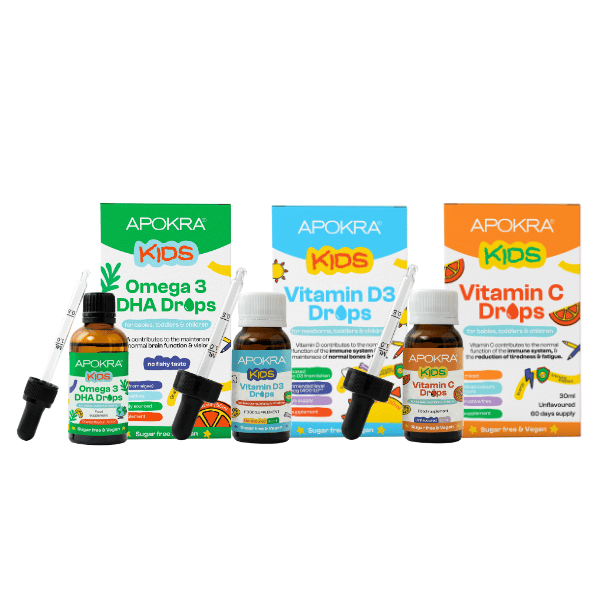Folic Acid in Pregnancy: Everything you need to know

Folic acid supplementation is recommended by healthcare professionals and the department of health in pregnancy. Folic acid plays an important role in preventing neural tube defects in the unborn baby. This article discusses in detail everything you need to know about folic acid if you are pregnant or planning to be.
What Is Folic Acid?
Folic acid is the synthetic form of the natural dietary vitamin, folate. Folic acid is classed as a B vitamin and is also known as vitamin B9. Dietary folate can be obtained by eating foods like leafy greens, vegetables, eggs and some fruits. It is difficult to obtain dietary folate, and it isn’t very easily absorbed by the body. This means that there is an increased risk of deficiency in the population. To combat this risk, folic acid is added to commonly eaten foods like cereals and can be found in multivitamins.
What Are the Benefits of Folic Acid?
Folic acid has many important benefits. Folate helps the body make healthy red blood cells. If folate levels are low, this can lead to folate deficiency anaemia. Folic acid supplementation is important in the treatment and prevention.
Folic acid for pregnancy also plays an important role. Folic acid supplementation through prenatal vitamins helps to reduce the risk of neural tube defects. Folic acid helps the foetus’ brain, spinal cord and skull develop as it should in pregnancy. Low folate levels can lead to neural tube defects like spina bifida. Folic acid is therefore recommended by healthcare professionals in pregnancy.
Folic acid is also safe to take during breastfeeding and can be discussed with your doctor.
When should I start taking folic acid in pregnancy?
Folic acid for pregnancy should be taken every day before you’re pregnant. When pregnancy is confirmed, folic acid should be taken until at least 12 weeks into pregnancy. It is still safe to take supplemental folic acid throughout the whole of pregnancy at the level of 400mcg daily. It might also be recommended by your midwife if you are at risk of folate deficiency anaemia.
Folic acid in pregnancy is vital to the normal development of the foetus. Supplemental folic acid intake increases maternal folate levels. Low maternal folate levels are a risk factor in the development of neural tube defects in the developing foetus.
It important to start taking a folic acid pre-natal supplement before you stop contraception or if there is a chance you can become pregnancy. This is to reduce the risk of becoming pregnant when your folic acid levels may be low, which is a risk to the unborn baby.
How much folic acid should I take in pregnancy?
Folic acid 400mcg daily should be taken in pregnancy. Folic acid for pregnancy should be taken every day before conception and for at least the first 12 weeks of pregnancy. It is also fine to continue taking folic acid 400mcg daily throughout your pregnancy, this can be discussed further with your midwife.
There may be occasions where you require an increased dose of folic acid. If you have an increased risk of having a baby with a neural tube defect (e.g., Family history or diabetes), then you should speak to a healthcare professional. In this case, a dose of 5mg folic acid is usually recommended but this is prescription only.
Folic acid can be found in the dose of 400mcg in prenatal vitamins. It is important to choose a prenatal vitamin with a methylated version of folic acid like Quatrefolic® as they are better absorbed by the body. Other forms of folic acid are not absorbed as well and there is an increased risk that the body doesn’t obtain the level it requires.
What foods contain folic acid?
Folic acid is found in many fortified foods and drinks, like cereals, flour and vitamin drinks. Folate, the natural form of folic acid is found in foods like broccoli, leafy green vegetables such as spinach, chickpeas, peas and liver. Folic acid can commonly be found in multivitamins and prenatal vitamins. Methylated versions of folic acid are much better absorbed and should be a first choice in pregnancy.
Overall, it is difficult to obtain enough folic acid through dietary measures alone and low levels are risk to the foetus. Hence, folic acid supplementation in the form of prenatal vitamins is recommended by the department of health in pregnancy.








Comments
Leave a comment
Your Email Address Will Not Be Published. Required Fields Are Marked *